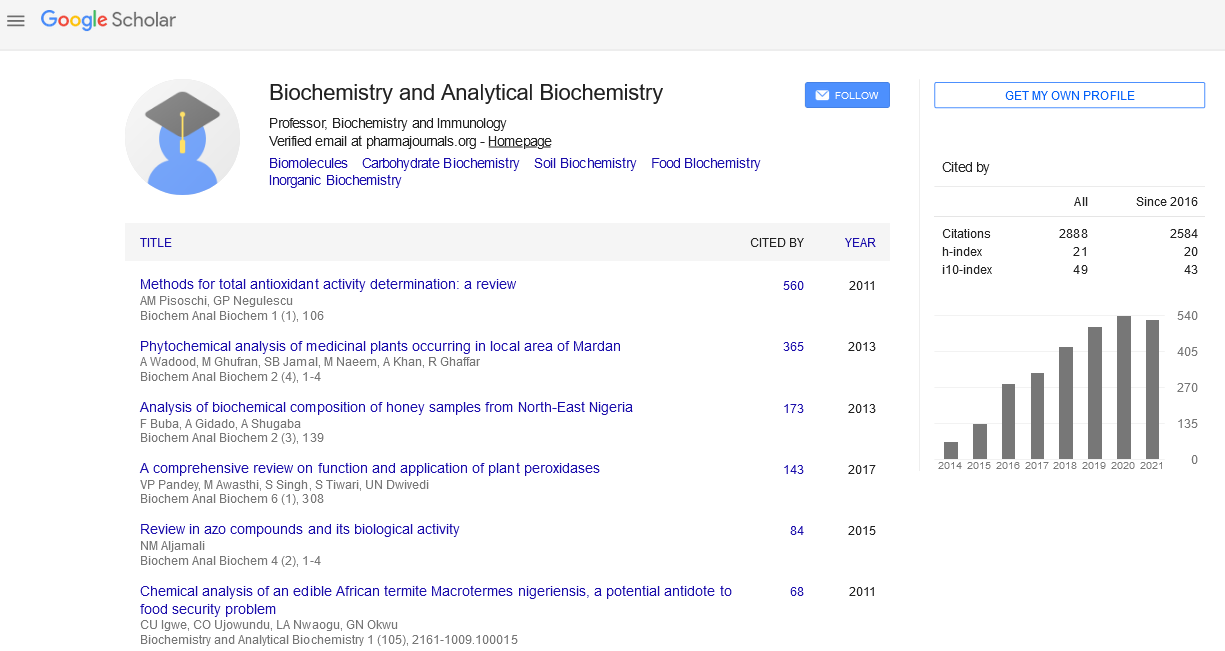Indexed In
- Open J Gate
- Genamics JournalSeek
- ResearchBible
- RefSeek
- Directory of Research Journal Indexing (DRJI)
- Hamdard University
- EBSCO A-Z
- OCLC- WorldCat
- Scholarsteer
- Publons
- MIAR
- Euro Pub
- Google Scholar
Useful Links
Share This Page
Journal Flyer

Open Access Journals
- Agri and Aquaculture
- Biochemistry
- Bioinformatics & Systems Biology
- Business & Management
- Chemistry
- Clinical Sciences
- Engineering
- Food & Nutrition
- General Science
- Genetics & Molecular Biology
- Immunology & Microbiology
- Medical Sciences
- Neuroscience & Psychology
- Nursing & Health Care
- Pharmaceutical Sciences
Abstract
Management of Phenylketonuria
Phenylketonuria is among the most prevalent amino acid deficiency diseases that affect Americans. Phenylketonuria is an inherited amino acid deficiency disease that causes increased phenylalanine levels, a building block of proteins, in the blood. The condition is prevalent in the United States as it occurs in one out of 10,000 or 15,000 births. Persons with phenylketonuria experience psychiatric disorders, intellectual disability, hyperactivity, behavioral problems, eczema, and neurological issues. A significant percentage of individuals with phenylketonuria do not receive evidence-based care in the United States. Persons with phenylketonuria experience neurological signs, recurrent headaches, tremors, and seizures for failing to complete comprehensive treatment. The research aims to provide detailed information on evidence-based treatment and prevention methods for phenylketonuria to enhance its management and reduce adverse symptoms among phenylketonuria patients. In completing the study, the scholars conducted secondary research that involved nine peer-reviewed articles with accurate and detailed information on phenylketonuria's pharmacological and non-pharmacological treatment methods. The research revealed that enzyme therapy, Large Neutral Amino Acids, sapropterin therapy, dietary therapy, nutrition education, and psychosocial support are essential in managing phenylketonuria among diverse patients. On the other hand, the research found out that scholars have not provided detailed information regarding the side effects of phenylketonuria's pharmacological and non-pharmacological treatment methods. The scholars expect physicians to utilize evidencebased pharmacological and non-pharmacological treatment methods to manage phenylketonuria.
Published Date: 2021-06-28; Received Date: 2021-06-07


